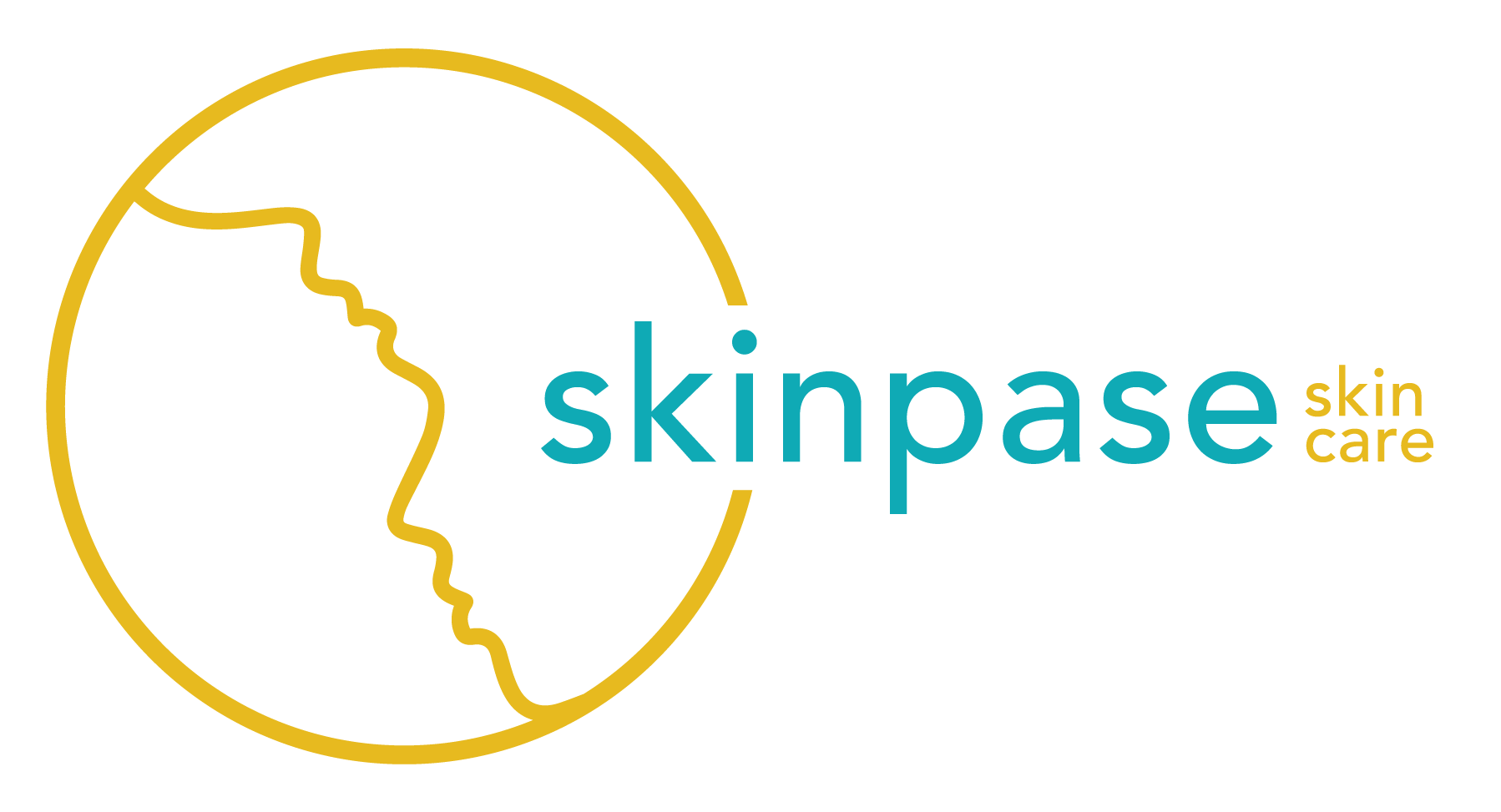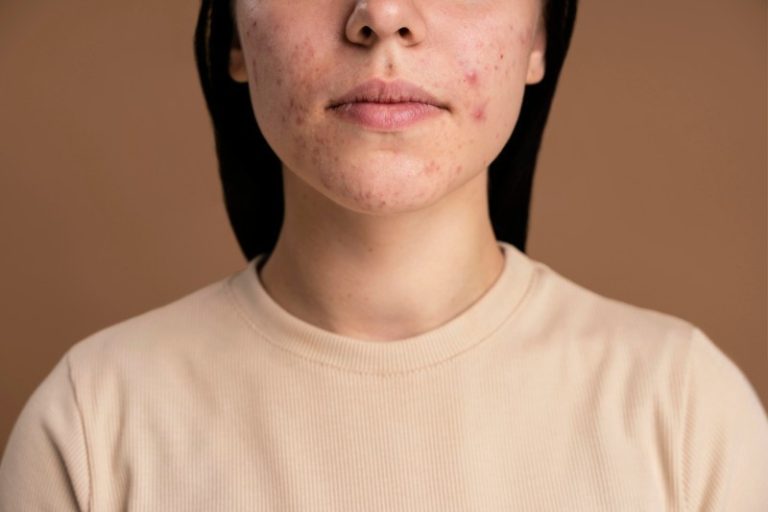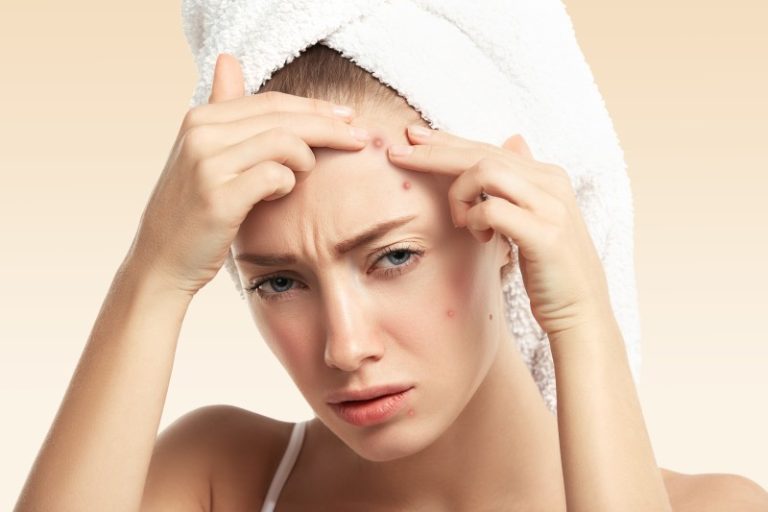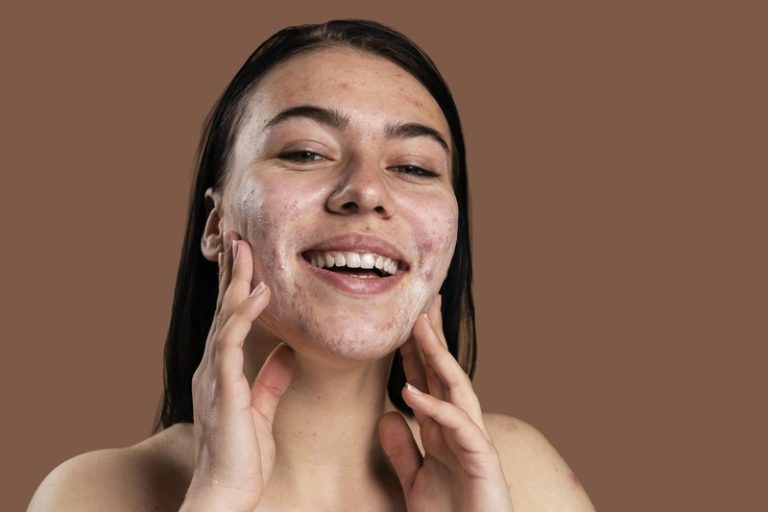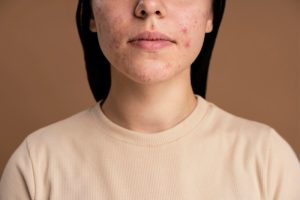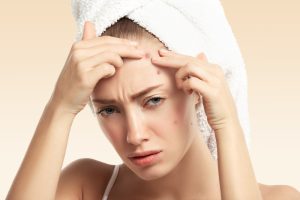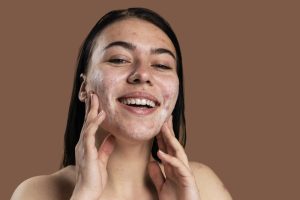Acne Treatment at Skinpase Clinic
What is Acne?
Acne is a skin condition that develops when hair follicles beneath the skin become clogged. Sebum oil that keeps the skin from drying out and dead skin cells clog the pores, resulting in lesions that shows up and are referred to as pimples or zits. The outbreaks may initially appear on the face, though they can also occur on the back, shoulders, and chest.
The majority of people’s acne normally goes away by the time they are in their thirties although some still have acne in their forties and fifties.
Who is affected by acne?
Although acne is most common in teens, it can also develop later, such as in one’s mid-20s or during menopause. Skin that has been exposed to Propionibacterium acnes will appear red and swollen. With topical creams, gels, or antibiotics, it can be exceedingly challenging to treat well and can have catastrophic impacts on confidence and self-esteem.
Cysts can form beneath the skin’s surface in extreme situations, and if they rupture, acne scarring could develop.
Types of Acne
There are various lesions, or pimples, that acne can create. Comedones are the medical term for swollen or blocked hair follicles. A few of the common acne types are:
- Whiteheads: A white lump caused by clogged hair follicles that remain under the skin.
- Blackheads: Broken-open clogged follicles that ascend to the skin's surface. They are not unclean; rather, the air causes the sebum on the skin's surface to turn black.
What Causes Acne?
Doctors and researchers think that any one or more of the following factors may contribute to acne development:
Acne Treatment
- Topical medications: creams, gels or lotions containing ingredients like benzoyl peroxide, salicylic acid, or retinoids.
- Antibiotics: oral antibiotics or topical antibiotics may be prescribed to reduce bacteria and inflammation
- Hormonal therapy: hormone-based treatments can help regulate hormones and reduce breakouts
- Isotretinoin: a powerful oral medication that can be prescribed for severe or persistent acne.
- Light therapy: blue light therapy or photodynamic therapy may be used to kill bacteria and reduce inflammation.
- Extractions: a dermatologist or esthetician can manually remove blackheads and whiteheads
It’s important to note that the most effective acne treatment depends on the individual and the type and severity of their acne, and it may take some time to find the best treatment plan. Our dermatologists advices the most advanced acne treatment methods for removing it.
Acne Scars Treatment
Our acne scar treatment clinic has curing options that includes laser therapy, chemical peeling, microneedling, dermabrasion etc which are all cost effective ways of treatments.
It’s important to consult with a dermatologist to determine which treatment option is best for you, based on the severity and type of your acne scars, as well as your skin type and overall health. Our dermatology clinic gives you ample support for treating and curing the scars.
Besides acne treatment, our medical dermatology team also cares for skin infections treatment, psoriasis treatment, keloids treatment, treatment for skin allergies, skin tags removal etc
Frequently Asked Questions
Can acne be prevented?
There is no proven solution to prevent acne. Anyhow, certain lifestyle habits can reduce the likelihood of developing acne. Avoid touching the face, avoid picking or squeezing pimples, avoid products that can clog pores and wash the face twice daily with a gentle cleanser are some of the ways to prevent acne
Can you cure your acne condition?
There is no permanent cure for acne. But we can manage it with proper treatment and lifestyle practices.We have to change treatment plans over time as the skin changes. Many people suffering from acne achieves significant improvement in their symptoms
How long does it take for acne to clear up?
The time taken for acne to cure depends on the severity of the acne and treatment plans.Mild acne starts to improve within a few weeks while severe acne takes months to get noticable results.The patients have to be consistent with the acne treatment
Can certain foods cause acne?
Some experts agree that certain foods can trigger the acne development. High-glycemic-index foods like sugary and starchy foods increases the insulin levels resulting in acne formation. Some dairy products can also trigger acne. On the other hand, some people who take these foods won’t develop acne. Moreover,factors like genetics, hormones and skincare habits can also results in acne
Do acne treatments gives desire results?
Acne treatments reduces the severity of the condition and improves the appearance of the skin. However the results may vary and depends on factors like the skin type, the condition of acne and any medical history. In general, most people can expect to see improvements within a few weeks to a few months of starting treatment.
Latest Blogs
Updated Blogs & News

